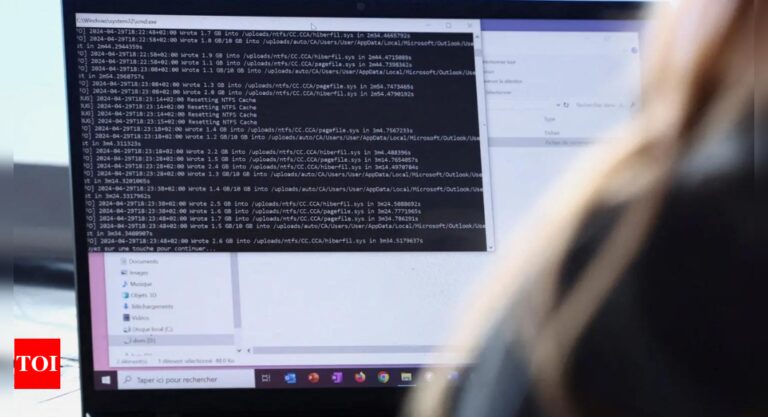Islamabad: Internet users and Digital Rights Activist Disruptions to digital platforms and slowing internet speeds Pakistan Government The company confirmed on Thursday that it was upgrading its “web management system” to address cybersecurity threats.
Internet speeds have fallen by 30 to 40 percent in recent weeks as the Pakistani government moved to implement a controversial nationwide firewall to block malicious content, protect government networks from attacks and allow the government to identify IP addresses linked to so-called “anti-national propaganda.”
Government sources said telecommunications authorities had completed the second trial of a newly installed firewall, the first of which was carried out in July and slowed down social media platforms.
Prime Minister Shehbaz Sharif’s government has allocated over 30 billion Pakistani rupees in its development budget for the acquisition and installation of the filtration system.
However, the fallout from the firewall’s implementation has drawn criticism from internet users and digital rights groups, who have expressed concern about the future of internet-based businesses in Pakistan.
Government officials have previously pretended not to know that the internet outages were linked to the installation of the firewall, blaming telecommunications companies and internet service providers for connectivity problems.
But on Thursday, IT Minister Shaza Fatima Khawaja said her ministry was responding to complaints about slow internet speeds, though they were not related to the cybersecurity firewall issue..
“We have received complaints about slow internet and have asked the Pakistan Telecommunication Authority to provide us with the data for the past two weeks so that we can look into the data traffic and know the speed issue,” she told reporters.
Asked about the installation of the firewall, the minister said it was a cybersecurity issue and countries across the world were using the technology. “Earlier, the government controlled the web system, but with the rise in international cybersecurity attacks against the country, there is an increasing need for the government to strengthen its capacity to prevent these attacks,” Khawaja said.
Countries such as China, Iran, Turkey and Russia have long implemented national firewalls to regulate internet content, with the aim of identifying and restricting sources of propaganda content.
The Internet Service Providers Association blamed the slowdown and outages on increased security and surveillance. “This is extremely unfortunate for customers, as many are leaving smaller ISPs as they can no longer tolerate the poor service. If this situation continues, we will see a mass exodus of businesses from Pakistan,” a statement from the service providers said.
Internet speeds have fallen by 30 to 40 percent in recent weeks as the Pakistani government moved to implement a controversial nationwide firewall to block malicious content, protect government networks from attacks and allow the government to identify IP addresses linked to so-called “anti-national propaganda.”
Government sources said telecommunications authorities had completed the second trial of a newly installed firewall, the first of which was carried out in July and slowed down social media platforms.
Prime Minister Shehbaz Sharif’s government has allocated over 30 billion Pakistani rupees in its development budget for the acquisition and installation of the filtration system.
However, the fallout from the firewall’s implementation has drawn criticism from internet users and digital rights groups, who have expressed concern about the future of internet-based businesses in Pakistan.
Government officials have previously pretended not to know that the internet outages were linked to the installation of the firewall, blaming telecommunications companies and internet service providers for connectivity problems.
But on Thursday, IT Minister Shaza Fatima Khawaja said her ministry was responding to complaints about slow internet speeds, though they were not related to the cybersecurity firewall issue..
“We have received complaints about slow internet and have asked the Pakistan Telecommunication Authority to provide us with the data for the past two weeks so that we can look into the data traffic and know the speed issue,” she told reporters.
Asked about the installation of the firewall, the minister said it was a cybersecurity issue and countries across the world were using the technology. “Earlier, the government controlled the web system, but with the rise in international cybersecurity attacks against the country, there is an increasing need for the government to strengthen its capacity to prevent these attacks,” Khawaja said.
Countries such as China, Iran, Turkey and Russia have long implemented national firewalls to regulate internet content, with the aim of identifying and restricting sources of propaganda content.
The Internet Service Providers Association blamed the slowdown and outages on increased security and surveillance. “This is extremely unfortunate for customers, as many are leaving smaller ISPs as they can no longer tolerate the poor service. If this situation continues, we will see a mass exodus of businesses from Pakistan,” a statement from the service providers said.


